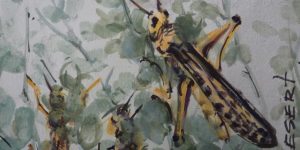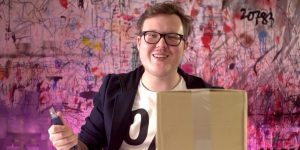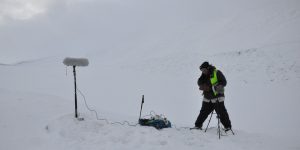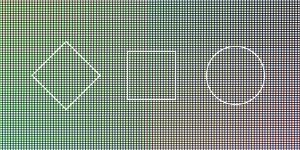Ars Electronica Garden Gdańsk

Locusts
Oswaldo Maciá (CO/UK)
Oswaldo Macia is a sculptor working primarily with sound and smell. His compositions investigate conventional notions of knowledge and perception. He creates spaces for thinking, stimulates new questions and new problems. "My sculptural compositions are formed from images, objects, sounds and smells. Whether on paper, object, video or image, the works operate as sculptures. Sometimes they are scenarios: they occupy space, pulling and pushing all that surrounds them for their own ends. Sculpture is concerned with the relationships people have to the space and volumes that form the world we experience; in utilizing a wider perceptual range my work opens itself to subjectivity over objectivity, experience over knowledge."

artUNBOXING
Filip Ignatowicz (PL)
artUNBOXING is a series of video-performances produced for the Internet. It is published in episodes, in the form of a program that mimics the YouTube unboxing show. Instead of typical objects for this genre, I open purchased works of art, things signed by artists, or gadgets from exhibitions. The act of unpacking of those items - is the essence of my creative act. I try to verify the thin border between art and product.

Creative Question Challenge: The Organ of Consciousness
Oswaldo Maciá (CO/UK), Chris Bean (IE), Emilia Leszkowicz (PL)
"Lasst uns beenden, was wir begonnen haben." Auf diese Weise stellt die UNO ihr erstes Ziel für nachhaltige Entwicklung vor - das Ende der Armut in allen Formen und Dimensionen bis 2030. Die 17 Ziele der Nachhaltigen Entwicklung und ihre 169 Teilziele wurden als ein ausuferndes, missverständliches Durcheinander großer Absichten beschrieben. Allein der Titel der Entwicklungsagenda - "Unsere Welt umgestalten" - verströmt utopische Ambitionen. Er wurde 2015 von 193 Nationen angenommen. Fünf Jahre später und mit zehn verbleibenden Jahren: Wie wird sich unsere Welt verändern?

Sensory Orders
Erik Adigard (FR/US), Chris Salter (US/QC-CA)
Sensory Orders is an exhibition, online and print project examining the different orders of sense making taking place under our (current) conditions of extreme precarity and uncertainty. Twenty five international artists, scholars and researchers respond to how different orders - the /symbolic/ realm of language and culture, the /technological /realm of machines and the /organic /realm of viruses, plants, animals and the physical-chemical matter of the earth itself - sense on and affect each other.


